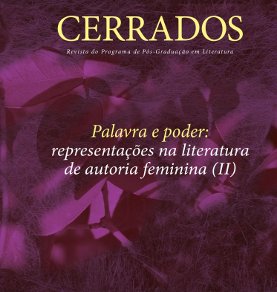Philosophy and poetry in Maria Zambrano
Keywords:
Zambrano. poetry. Philosophy. Literature.Abstract
Maria Zambrano is the most important Spanish intellectual of the 20th Century. As disciple of Ortega and Zubiri, Zambrano has been able to understand what would best turn possible the formulation of a thinking, at the same time autonomous and deep, in relation with her masters. As a Republican, she struggled against the horrors of Spanish Civil War and its consequences, without, naturally, resigning herself. Precisely, it was in exile that the work I will study ecloded: Philosophy and poetry. The main objective is to prove, based on Zambrano´s thinking, how is it possible to confirm the postulate of poetical reason able to overwhelm the established contradiction, with the appearance of the philosophical thinking between irrationality (poetry) and reason (philosophy), thus contributing, to the establishment of a common field in which philosophical thinking, more than the expression of the latest structures of reality (the Being), is creation and opening for the unexpected (the process of being).
Downloads
References
ZAMBRANO, M. Filosofía y poesía. México: Fondo de Cultura Económica, 2006.
JIMÉNEZ, J. D. Los senderos olvidados de la filosofía: una aproximación al pensamiento de María Zambrano. Madrid: Religión y Cultura, 1991.
LABRADA, M. A. Sobre la razón poética. Pamplona: EUNSA, 1992.
MAILLARD, Chantal. La creación por la metáfora: introducción a la razón poética. Barcelona: Anthropos, 1992.
ORTEGA Y MUÑOZ, Juan Fernando. Introducción al pensamiento de María Zambrano. México: Fondo de Cultura Económica, 1994.
REVILLA, C. Claves de la razón poética ”“ María Zambrano: un pensamiento en el orden del tiempo. Madrid: Editorial Trotta, 1998.
AMORÓS, Andrés. “Zambrano-Valente: la palabra, lugar de encuentro”. Litoral II/124-125-126, 1983, p. 63-74.
ORTEGA MUÑOZ, J. F. Filosofía y poesía en María Zambrano, Filosofía y poesía. Madrid: Fundación Fernando Rielo, 1994.
Downloads
Published
How to Cite
Issue
Section
License
Proibida a reprodução parcial ou integral desta obra, por qualquer meio eletrônico, mecânico, inclusive por processo xerográfico, sem permissão expressa do editor (Lei n. 9.610 de 19/2/1998 )



